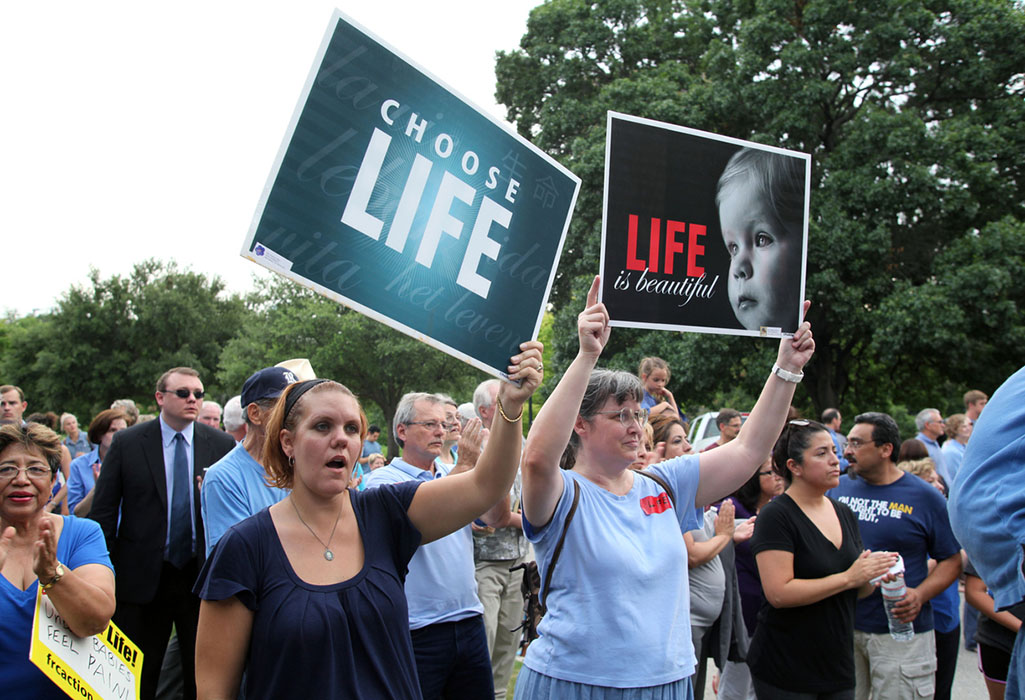
WASHINGTON — Congress apparently will once again adjourn without adopting a long-term solution for undocumented immigrants who were brought to the United States as children.
Despite a late effort from some members, the Senate and House of Representatives failed to include in an omnibus spending bill an immigration reform measure that would have enabled Dreamers, as they are known, to seek permanent legal residence and, eventually, citizenship. Both houses may vote on the $1.7 trillion Consolidated Appropriations Act by Friday (Dec. 23).
The Southern Baptist Ethics & Religious Liberty Commission (ERLC) and other organizations in the Evangelical Immigration Table (EIT) had urged members of Congress in a Dec. 1 letter to pass immigration reforms before adjournment. These included measures to provide a solution for Dreamers, enhanced border security and a sufficient number of legal, agricultural workers.
The EIT request came after an October court ruling upheld invalidation of the Obama-era Deferred Action for Childhood Arrivals (DACA) program. Established by executive order in 2012, DACA provides a two-year window of protection from deportation for undocumented immigrants who arrived in the United States before their 16th birthday and makes participants eligible for benefits that include permission to work.
A legislative answer for Dreamers has never gained passage by both the Senate and House of Representatives in the same session since it was first introduced 21 years ago. The U.S. Citizenship and Immigration Services reported there were nearly 590,000 active DACA recipients at the end of September.
Hannah Daniel, the ERLC’s policy manager, described it as “beyond frustrating that Congress has failed to act, once again, on behalf of our Dreamer neighbors and on much-needed border security improvements.”
“For too long, Congress has let partisan politics and convenient talking points impede necessary action, and this inaction is impacting the real lives of both Dreamers and those at the border,” she said in emailed comments for Baptist Press. “Especially as the DACA program is likely to end in the near future, courageous leadership will be needed to do what is right and protect these individuals who have been a part of our communities for decades.”
Matthew Soerens, EIT’s national coordinator, told BP it is “incredibly disheartening” that Congress has again postponed action that evangelical Christians have requested “for many years but which is increasingly urgent now.”
DACA is “very likely to be terminated entirely by the U.S. Supreme Court in the coming months,” he said in an email. “If and when that happens – unless Congress takes action – roughly 1,000 individuals per business day will have their employment authorization revoked over two years. These aren’t just numbers: They’re individual people, many of whom are members of Southern Baptist and other evangelical congregations.
“To withdraw legal protections and work authorization will mean their employers will be required to lay them off, harming not just these individuals . . . but also their U.S.-born children, their employers” and a national economy that “is facing a labor shortage,” said Soerens, also U.S. director of church mobilization and advocacy for World Relief.
In early October, the Fifth Circuit Court of Appeals in New Orleans upheld a federal judge’s 2021 ruling that DACA violates U.S. law by supplanting the authority of Congress regarding immigration. The unanimous, three-judge panel preserved the lower court’s decision to protect current DACA recipients for the time being from the effect of the ruling while prohibiting approval of additional requests to enter the program.
News that Sens. Thom Tillis, R-N.C., and Kyrsten Sinema, now an independent from Arizona, had reached agreement in early December on a bipartisan proposal to provide a pathway to citizenship for Dreamers and to fund increased border security encouraged EIT members. That plan did not make it into the omnibus spending measure presented to the Senate and House, however.
In 2021, the House passed by a 228-197 vote a bill to place Dreamers on a path to permanent resident status if they meet specific requirements, such as passing a background check and achieving a certain educational level or serving in the U.S. military. The legislation did not gain Senate approval.
The Trump administration rescinded DACA in 2017, but the Supreme Court overturned the action in 2020, ruling the action was “arbitrary and capricious” under the Administrative Procedure Act, which governs the manner in which federal agencies establish and issue rules. The high court said the administration may revoke DACA but the manner in which it did so failed the procedural requirements of federal law.
A Lifeway Research survey released in late September showed 80 percent of self-identified evangelicals would approve of bipartisan immigration reform that “strengthens border security, establishes a pathway to citizenship for Dreamers, and provides enough farmworkers.” The EIT and World Relief sponsored the study.
The effort to provide a solution for Dreamers is one of many issues involved in reforming America’s immigration system. An estimated 11 million undocumented immigrants are in the United States, but congressional efforts to enact a comprehensive measure have repeatedly failed.
In addition to the ERLC and World Relief, the EIT members that signed the Dec. 1 letter to Congress were the National Association of Evangelicals, National Latino Evangelical Coalition, Bethany Christian Services, Council for Christian Colleges and Universities, Faith and Community Empowerment and The Wesleyan Church.
Messengers to the Southern Baptist Convention’s meetings in 2011 and 2018 adopted resolutions on immigration reform that called for securing the border and establishing “a just and compassionate path to legal status,” with restitutionary measures, for undocumented immigrants already in the United States.
When it was first proposed in 2001, a Senate bill to address undocumented immigrants brought to the country as children was introduced as the Development, Relief and Education for Alien Minors (DREAM) Act, which resulted in those covered by the measure being known as Dreamers.
(EDITOR’S NOTE – Tom Strode is Washington bureau chief for Baptist Press.)


